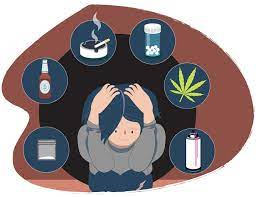10 Effective Coping Strategies for Managing Depression
10 Effective Coping Strategies for Managing Depression
Depression is a complex mental health condition that can have a significant impact on a person's life. It can cause feelings of sadness, hopelessness, and despair, making it difficult for individuals to carry out their daily activities. However, there are various coping strategies that can be used to manage depression and improve overall well-being. In this article, we will discuss ten effective coping strategies for managing depression.
Seek professional help:
Depression is a serious condition that requires professional intervention. Seeking help from a mental health professional, such as a therapist or psychiatrist, can be incredibly beneficial. They can provide support, guidance, and help with developing coping skills.Practice self-care:
Taking care of yourself is crucial for managing depression. This includes getting enough sleep, eating a healthy diet, and exercising regularly. Self-care activities, such as meditation or yoga, can also be helpful.Engage in activities that bring joy:
Depression can make it difficult to enjoy activities that were once pleasurable. However, engaging in activities that bring joy can help improve mood and increase feelings of happiness. This can include hobbies, spending time with loved ones, or trying new things.Connect with others:
Isolation can make depression worse. Connecting with others, whether it be through social support groups or spending time with friends and family, can help combat feelings of loneliness.Set realistic goals:
Setting realistic goals can help individuals feel a sense of accomplishment, which can boost mood and improve overall well-being. Start with small, achievable goals and gradually work up to larger ones.Challenge negative thoughts:
Depression can cause individuals to have negative thoughts about themselves and the world around them. Challenging these thoughts and replacing them with more positive ones can help improve mood and reduce symptoms of depression.Create a routine:
Establishing a daily routine can provide structure and stability, which can be helpful for managing depression. This can include setting a consistent sleep schedule, meal times, and daily activities.Practice relaxation techniques:
Relaxation techniques, such as deep breathing or progressive muscle relaxation, can help reduce symptoms of depression and promote feelings of calmness and relaxation.Avoid drugs and alcohol:
Substance use can worsen symptoms of depression and make it more difficult to manage. Avoiding drugs and alcohol can help improve mood and overall well-being.Practice mindfulness:
Mindfulness involves being present in the moment and accepting thoughts and feelings without judgment. This can be a helpful coping strategy for managing depression, as it can reduce feelings of anxiety and promote feelings of calmness.
Managing depression can be a challenging process, but utilizing these coping strategies can help individuals improve their overall well-being and quality of life. Seeking professional help, practicing self-care, connecting with others, and engaging in activities that bring joy are all effective ways to manage depression. By incorporating these strategies into their daily lives, individuals can take control of their mental health and lead happier, healthier lives












Comments
Post a Comment